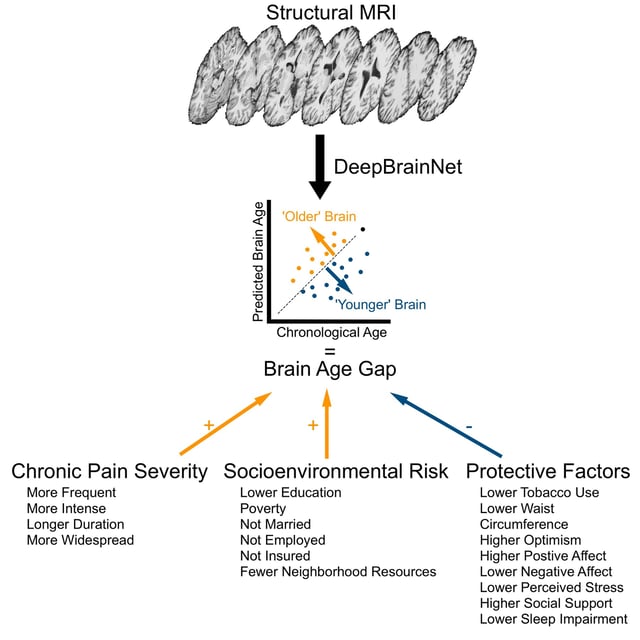Overview
- Researchers tracked 128 middle-aged and older adults, most with chronic musculoskeletal pain or at risk for knee osteoarthritis, over two years.
- MRI scans analyzed by a machine learning model produced a brain-age gap used as an overall measure of brain health.
- Participants with the most protective factors—restorative sleep, social support, healthy weight, stress management and avoiding tobacco—had brains up to eight years younger at baseline and aged more slowly.
- Chronic pain, lower income, less education and related social risks correlated with older-looking brains at the start, with those links weakening over time.
- The peer-reviewed findings were published Sept. 11 in Brain Communications, and authors stressed these are modifiable factors in an observational study with a modest, specific sample.

